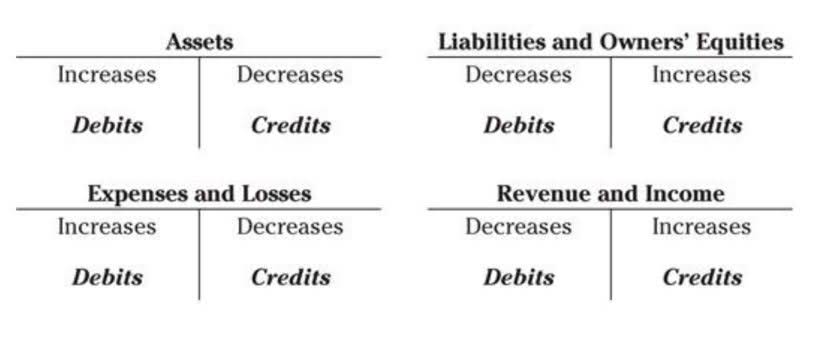Content
- Explore QuickBooks for Windows
- Schedule C Import to TurboTax
- The Best Software to Track & Organize Expenses
- Signs Your Business Needs Online Bookkeeping
- Stay tax-time ready, all year long
- Why QuickBooks
- Intuit QuickBooks Online
- Set Schedule C Clients up for Success With a QuickBooks Self-Employed Account

This is a great advantage for QuickBooks users because it saves a ton of time that would normally be spent with tax preparation, while also minimizing potential errors on your taxes. Your accountant will surely appreciate it, too, if you decide to bring one in (QuickBooks doesn’t charge extra for inviting an accountant).
Use this QuickBooks Self-Employed review to determine if this is the right business accounting software for you. Thus, using the QBSE automatic business reports can be prepared. A bank account can be connected with the software to allocate all the financial resources in one place. Users just have to set up rules and categories, and the software will automatically allocate documents for them. In the future or you want to hire more staff to help you out, then you need to use QuickBooks Online. This QuickBooks setup services facilities you to smoothly scale up your business in the future. As compared to QBSE, QBO provides you with the options to integrate with other software, track inventory, prepare invoices and so much more.
Explore QuickBooks for Windows
While QuickBooks Online does offer a desktop version, QuickBooks Self Employed is only available in mobile/smartphone version. Reports in FreshBooks are simple enough for you to understand but powerful enough for your accountant to love.
Can QuickBooks be used for self-employed?
QuickBooks Self-Employed helps track your income, expenses, mileage, and tax info. You can access your accounts from a web browser or the mobile app. Your data syncs in both places. In general, the mobile app is better for tasks on the go, like tracking mileage.
Rules can be applied retroactively, and you can also mark a specific bank account as “mostly business” to take some of the legwork out of organizing your books. QuickBooks Self-Employed is designed to help freelancers and sole proprietors keep tabs on income, expenses and tax obligations.
Schedule C Import to TurboTax
You can either enter hours yourself or give employees protected access which allows them to do so. With four different plan offerings and pricing ranging from $25 per month to $150 per month, QuickBooks Online has the ability to accommodate a much wider variety of small businesses.
One glitch last year would deduct the GST amount owing from ONLY the customer’s end of the invoice. All receipts show up in the form of an invoice, an obvious disaster. So today I’m left having to reach https://www.bookstime.com/ out to every client, troubleshooting. My business needs me to operate so that is an entire day’s revenue lost. These are only a few examples, I could write a book on why to avoid this software.
The Best Software to Track & Organize Expenses
QuickBooks Self-Employed includes many features that help you organize your income and expenses. These features include the ability to track your mileage, connect your bank and credit card accounts, separate personal from business expenses, upload receipts, and print profit and loss (P&L) reports. However, while QuickBooks Self-Employed has profit and loss accounts, it doesn’t have a balance sheet or track assets and liabilities. Read our comparison of QuickBooks Online vs Desktop for other great QuickBooks options that include complete financial statements. This new feature makes it easy to create and send professional invoices with just a few clicks.
- Additionally, you’ll be able to create rules for trending and predictable expenses or payments to help you automate data entry.
- Remember that to pay your federal quarterly taxes through QuickBooks Self-Employed, you need to sign up for the Electronic Federal Tax Payment System .
- However, some professional transactions take place based on verbally agreed terms.
- QuickBooks’ invoicing capabilities are particularly lacking—which is a huge issue for a freelance-focused product.
- Intuit QuickBooks Self-Employed displays your taxable business profit for the current tax year to date, breaking it down into income and Schedule C deductions.
- It’s a great tool if you’re simply looking to get organized and track revenue and expenses.
The cheapest QuickBooks Online plan is $15/mo and you’d have to pay an extra $25/mo for payroll and tax support. In addition, the self-employed version of Turbo Tax is $115, so you’d be looking at $535/year . On the other hand, QuickBooks Self-Employed with Turbo Tax is $17/mo, or $204/yr to give you some perspective. QuickBooks Self-Employed is cloud-based software that is easy to navigate, and the new UI makes the software even more of a joy to use. There’s no confusing accounting jargon or unnecessary features crowding your dashboard, and setting up your account takes very little time. There’s also built-in support if you need extra help setting up and navigating the software.
Signs Your Business Needs Online Bookkeeping
Each section has a clean layout, with a few at-a-glance reports. Finances are sensitive information; the Advanced plan lets you give custom access to different groups of users. Plus, you can assign work to specific groups and create custom permission for deposits, expense reports, and sales transactions. Luckily, the Advanced plan lets you save time by batching your invoices and expenses. Just kidding, QuickBooks lets you take pictures of your receipts and upload them, or send them by email.
In fact, you and your team will have access to online training that Intuit says is valued at $2,000. Each one increases in price while including all of the features from the previous tier, and then some. Each variant also caters to different needs, though, as small businesses and self-employed individuals have different things to worry about on a daily basis. From inventory and invoices, to projects and people, QuickBooks organizes it all in one place. Even though this might make you feel old, 2004 isn’t exactly recent history anymore. Technology changes so fast and Quicken has even more offerings in its product line today.
During tax time most freelancers find themselves scrambling to prepare tax returns, with the deadline around the corner. Freshbooks provides a solution to this problem by letting you categorize expenses, prepare financial reports and collect information for tax time in a way that is easy. Freshbooks gives you a chance to file your tax early and in doing so you gain a couple of advantages. They include the ability to get your money faster in case you were expecting a refund or have more time to pay if you expect to owe. Also you avoid being a victim of tax fraud by filing before scammers have the chance to craft and submit one for you. If you need to go back further, you will have to login into those accounts directly, download the transactions into a spreadsheet then upload them into QuickBooks. Once the transactions are in QuickBooks, you simply go through each transaction and label it as either personal or business and apply the appropriate category to the business transactions.
Stay tax-time ready, all year long
Businesses can get instant insights into their profitability and make smart decisions to maximize profits. While QuickBooks Self-Employed is the ideal software for freelancers, QuickBooks Small Business is useful for sole proprietors, LLPs, partnerships, non-profits and other such small entities.
There’s also a search bar to find the feature/section you’re looking for and a settings cog you can use to customize your dashboard. Moreover, it’s also worth mentioning that for the higher-level versions of the Self-Employed plans, you only receive one state and one federal tax return filing. QBSE automatically imports transactions and tracks mileage for your clients, sorting each deduction into Schedule C categories along the way.
Why QuickBooks
Question around who owns your data for the Quickbooks Self employed with Turbo Tax option. Here’s an overview of the features you can expect with QuickBooks Self-Employed. Here’s a quick overview of QuickBooks Self-Employed’s features. Tim is a Certified QuickBooks Time Pro, QuickBooks ProAdvisor, and CPA with 25 years of experience.

Quickbooks Online is designed to track the transactions of business accounts. It has more advanced features, so it can track sales tax, keep track of inventory, etc. QuickBooks Self-Employed has an intuitive dashboard that’s easy to navigate. It displays six charts that give you an instant view of your financial data. The tabs on the left side of the dashboard make it easy to explore the other features.
Auto categorize expenses- QuickBooks self-employed app allows users to put transactions in to categories on the go. Here you can organize your finances with transactions getting matched to income and expenses automatically. Plus, if you want to explore Zoho Books for yourself, you can sign up for their 14-day free trial.
- As of this writing, if you add a partner to your business, you can’t simply upgrade your subscription to “real” QuickBooks Online and continue using the same accounting system for your business.
- There is no sales tax on invoices, no estimates feature, and — the big one — no state tax support.
- You can enter start and end addresses and let Intuit QuickBooks Self-Employed calculate the miles or simply enter the miles driven yourself.
- QuickBooks Self-Employed is not designed for businesses, with the exception of Single Member LLC’s, under certain circumstances.
- Only 50% of customers could see how to open invoices easily, maybe 20% of those didn’t get an openable version at all and I had to give them my bank details.
At the top of this report, you can quickly see your business income, spending, and business profit. Below it, you’ll see a running log of all of the transactions QuickBooks Self Employed related to your business. In addition to the pricing above, QuickBooks includes add-ons that can be tacked on to any of its small business plans.
Intuit QuickBooks Online
Like the Small Business variant, QuickBooks Self-Employed has its own apps for Apple and Android. Within the log, you’ll see the date, transaction description, amount, type, and category of the transaction. You can also search your transactions if you need to find a specific item. Many different metrics are covered, such as A/R, budget, profit/loss, cash flows, and more. Reports are also customizable so you can be sure to only see the information that is relevant to you. QuickBooks includes a wide variety of reports that vary depending on your plan. With this feature, you can automate certain tasks such as reminders and triggers to help you save time and improve cash flows.

Fit Small Business content and reviews are editorially independent. QuickBooks Self-Employed is a good entry point for new freelancers, but it won’t easily grow with your business. We’ll find deductible business expenses that you didn’t know about and auto-categorized for your Schedule C.
Set Schedule C Clients up for Success With a QuickBooks Self-Employed Account
If I had made a business purchase with cash or on a personal card, QuickBooks made it easy for me to account for it. Intuit is also the developer and publisher of TurboTax, so it offers two bundled deals with that service. For $25 per month ($12 per month for the first three months), you get the Self-Employed Tax Bundle. Because Intuit QuickBooks Self-Employed and TurboTax Self-Employed are integrated, you can transfer your income and expense data directly into TurboTax Self-Employed and pay your estimated taxes online. The package includes one free federal and one free state return filing. Self-Employed Live Tax Bundle ($35 per month; $17 per month for the first three months) adds unlimited help and advice from a CPA year-round and a final review of your return from that professional. QuickBooks Self-Employed is tax software with a few light bookkeeping tools added to the mix.

